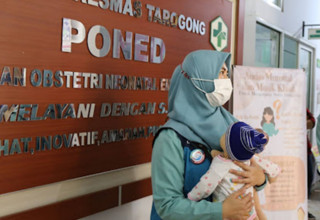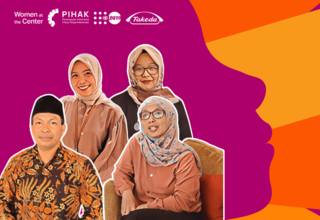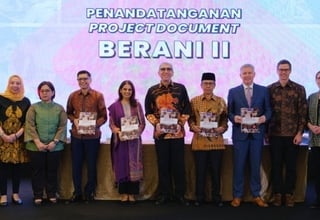South-South Cooperation (SSC) is a term historically used by policymakers and academics to describe the exchange of resources, technology and knowledge between developing countries, also known as countries of the “Global South”. Indonesia, as an emerging middle-income country and a member of the G20 has an important role in leading international development cooperation.
The Government of Indonesia has a vision to further expand its influence and role, both regionally and globally, and it recognizes that one of the ways to do this is through the exchange of experiences and knowledge via SSC. The SSC framework is seen as complementary to the Indonesian policy of self-reliance and partnership among all nations. SSC efforts are included in the National Medium-Term Development Plan (RPJMN) 2009-2014 and will continue to be a component of the next RPJMN (2015-2019).
UNFPA is working to strengthen the capacity of the Government of Indonesia in global and bilateral South-South Cooperation on population, reproductive health and gender issues.
UNFPA is the sole UN agency working with the Government of Indonesia on SSC and ICPD. UNFPA and the National Population and Family Planning Board (BKKBN) have worked together to develop SSC programmes on population and family planning since the early 1990s (with a short break between 2011 and 2013). In 2013, BKKBN with the support of UNFPA developed and conducted the SSC programme on Developing Strategic Partnerships with Faith-Based Organizations (FBOs) and Muslim Leaders in Family Planning (FP). BKKBN and UNFPA have also commenced work on developing the SSC programme on Comprehensive FP Training.
Indonesia is interested in conducting more SSC programmes in partnership with countries with similar characteristics and needs. In this context, BKKBN currently runs a bilateral SSC programme with the Government of the Philippines, having signed a Memorandum of Understanding for a period of five years in 2012. Under this programme, Indonesia is sharing its experience in working with faith-based organizations to advise on a role for Muslim leaders in family planning, reproductive health and gender in the Autonomous Region of Muslim Mindanao (ARMM).
The achievements and lessons learned from Indonesia’s SSC framework will be shared at a pre-formed panel on the final day of the fourth International Conference on Family Planning in Bali.
Dr. Kadil Jojo Sinolinding, Secretary of the Department of Health, ARMM, from the Philippines, will discuss the experiences between the SSC between Indonesia and the Philippines on family planning issues. His presentation will include the programme’s impact on highlighting the important role of family planning in the context of reproductive health in the Autonomous Region of Muslim Mindanao. Prof. Musdah Mulia from the Islamic State University of Jakarta in Indonesia, will discuss the strategic partnership with Muslim religious leaders in family planning in Indonesia. And Dr. Ova Emilia from the University of Gadjah Mada in Indonesia will share highlights from the international training component on comprehensive, rights-based family planning – which looks at lessons learned from the Faculty of Medicine at UGM. The session will be moderated by the former Bkkbn Chairperson Prof. Dr Fasli Jalal.
Details:
Indonesian South-South Cooperation: Sharing Indonesia’s Experience in Family Planning With Other Developing Countries
Thursday, 28 January
10:30-11:50am
Uluwatu 1 Room
BNDCC




